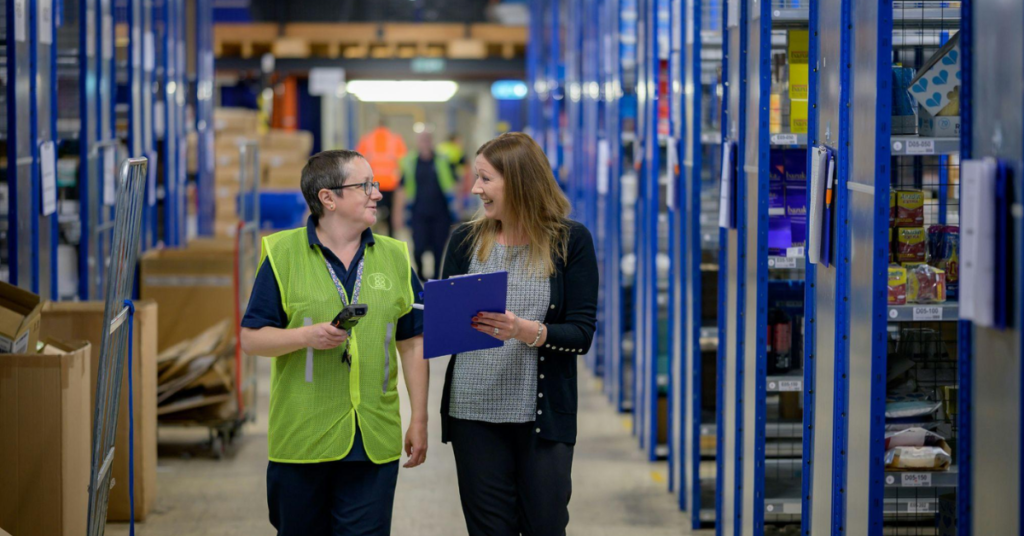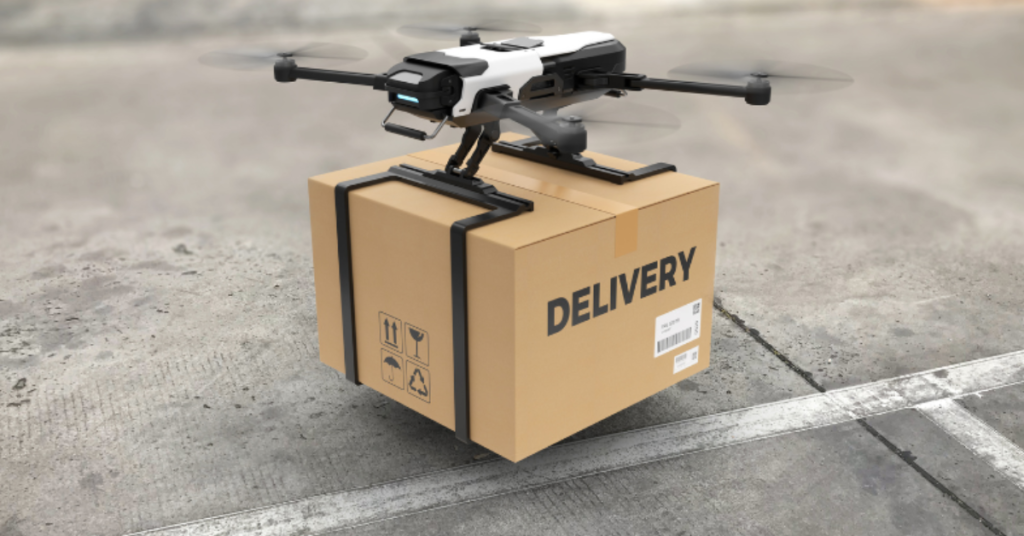
Logistics processes like warehousing, inventory management, shipping, and returns are essential for eCommerce businesses competing for customers and striving for accurate and timely order fulfillment. At the same time, these processes can take valuable time and attention away from management, sales, and marketing functions that directly impact growth. This makes partnering with a logistics service provider a logical option, so choosing the right logistics partner for your eCommerce business is critical.
In this blog post, we take a look at the definition and value of a logistics provider and review the leading third-party logistics (3PL) companies in the U.S. We also break down the key factors you should consider when selecting a logistics provider for your eCommerce business.
What is a logistics service provider?
A logistics service provider (LSP) is a third-party that specializes in supply chain management services such as transportation, warehousing, and distribution. For eCommerce retailers, outsourcing these services can allow them to remain completely virtual by eliminating the need to maintain physical infrastructure. Most logistics providers tailor their offerings for customers, with available services likely to include:
● Kitting and order fulfillment
● Cross docking to expedite material movement
● Domestic and international shipment
● Customer order tracking and monitoring
● Return processing (reverse logistics)
The value of logistics services
With business growth often comes an unmanageable logistics workload that calls for more experienced eyes and hands. Sustained growth has fueled eCommerce logistics companies, with 60% of online retailers outsourcing fulfillment services to some degree. Along with the obvious benefit of offloading responsibility for time-consuming material handling and shipping processes, logistics service providers add value in many other ways.
- Efficient Order Fulfillment: Logistics service providers are experts in warehouse and inventory management, so they already understand what tools and processes are needed to optimize order fulfillment processes. This benefit directly impacts customer satisfaction and brand reputation by making fulfillment more efficient and reliable.
- Cost Savings: A small eCommerce retailer might pay a premium for things like storage space, warehouse staffing, and transport services. 3PLs serving multiple customers benefit from economies of scale that can be passed on to their customers.
- Expanded Reach: Third-party logistics and freight service providers benefit from national or global networks that help them optimize transportation routes, reduce shipping costs, and leverage multiple warehouse locations. This breadth of experience can be especially valuable when navigating customs and international trade regulations.
- Technology Integration: The 3PL focus on logistics alone allows them to leverage the latest technology and implement software capabilities like real-time order tracking and advanced analytics to improve decision-making, efficiency, and customer satisfaction.
- Scalability: Logistics providers help eCommerce businesses scale by adapting quickly to changes in demand without requiring additional capital for infrastructure or other resources. This makes it easier to accommodate seasonal peaks while remaining focused on core operations.
- Risk Management: Utilizing a logistics service provider shifts the responsibility for issues like delays, damage, or loss of goods to the provider, which helps to protect an eCommerce business from disruptions. Experienced 3PLs also reduce legal risks from insurance claims and other complex issues.
- Compliance and Documentation: The laws and regulations related to shipping and logistics processes are complex, but logistics providers make it their specialty. This expertise helps to prevent delays by ensuring documentation like bills of lading and customs forms comply with relevant regulations.
- Improved Customer Experience: The common thread running through many 3PL benefits is an improved customer experience. Reliable and timely deliveries, real-time tracking, and hassle-free returns are among the factors leading to positive eCommerce customer reviews and enhanced brand loyalty.
Top eCommerce logistics providers in the US
The list of top eCommerce logistics providers, based on market share in 2023 and 2024, includes some familiar names as well as some relatively new entrants into this fast-growing space.
- DHL Logistics – The focus on business shipping that established DHL as an international logistics giant also extends to eCommerce customers.
- FedEx – Federal Express provides end-to-end logistics solutions in addition to their renowned express shipping services.
- UPS Supply Chain Solutions – UPS provides full service logistics options for customers in 220 countries.
- XPO Logistics – After a successful first decade in the transportation industry, XPO spun off its contract logistics operation in 2022 to form GXO Logistics.
- DB Schenker – Pioneering projects for this German logistics provider include a joint venture with startup company Volocopter to introduce heavy-lift drones.

Key factors to consider when choosing a logistics provider
In a market dominated by large eCommerce logistics companies and freight service providers, there are still many small and niche service providers that add value by aligning their service offerings and expertise with the needs of the eCommerce retailer. Logistics service provider capabilities that should be considered during the selection process include:
- Customizable services: No two eCommerce businesses have the same logistics needs, and these requirements are likely to change and grow over time. Customizable logistics services allow businesses to tailor solutions to their needs, scale their operations as demand increases, and ensure their logistics strategy remains aligned with their business objectives.
- Coverage area: While a startup eCommerce business might only need assistance with local shipping and order fulfillment, an established retailer shipping internationally will require a partner with a global network, expertise in cross-border logistics, and the ability to manage customs, duties, and international regulations.
- Technology and integration: Capabilities like real-time data sharing and automated order tracking rely on the integration of enterprise resource planning (ERP) tools such as inventory management software, barcoding, and customer relationship management (CRM). This integration enhances visibility and decision- making across the supply chain while ensuring eCommerce businesses are synchronized with their logistics partners to improve customer satisfaction.
- Scalability: No matter the size of the eCommerce business, the logistics service they choose to work with should be capable of adapting to their needs. Scalability factors include order volumes, geographic range, and the addition of new services like same-day delivery or international shipping to the customer portfolio.
- Cost-effectiveness: The savings from outsourcing logistics processes are a key decision factor, and hidden costs should also be weighed. For example, while some providers may charge less for order fulfillment, reverse logistics, and other time-consuming tasks, others may have a more established track record or offer volume-based discounts. All projected costs should be considered when comparing potential logistics service providers.
- Relevant experience: Each 3PL has their own strengths and weaknesses, along with a unique set of experiences and expertise to offer their customers. The long list of available services guarantees that each provider will have more experience in some areas than others. eCommerce businesses should evaluate these focus areas to ensure they align with their top areas of need.
- Reliability and reputation: No matter how many services a 3PL offers or how affordable their prices are, it is essential to investigate the reliability and reputation of the provider by seeking out customer reviews, references, and testimonials from businesses similar in size and scope to your own. You can expand upon this cursory research by reaching out to other businesses directly for firsthand accounts. The vetting process might also include a review of previous complaints and on-time delivery performance.
- Performance guarantees: Along with efficiency, cost, and speed, reliability is a cornerstone of customer satisfaction that all eCommerce businesses should seek out in their logistics partners. Written assurances that guarantee the 3PL will meet agreed upon service levels for metrics including order fulfillment accuracy and return-handling efficiency mitigate risks and build confidence by holding the logistics provider accountable for their performance.
As more eCommerce businesses form and third party logistics providers expand the breadth and depth of their offerings, the outsourcing trend is likely to continue. Just as no two eCommerce retailers offer the same products and services, each 3PL also brings unique expertise to the table. While affordability is important, reputation, scalability, and customized services are equally valuable traits. eCommerce businesses should take the time to understand their current and future needs before selecting a logistics partner. The right choice can bring the expanded reach, reduced costs, and timely order fulfillment that lead to more satisfied customers.